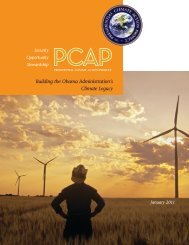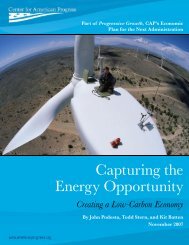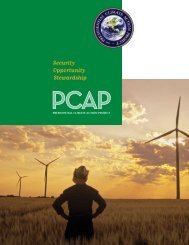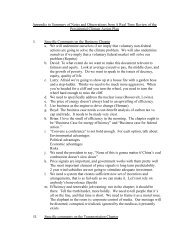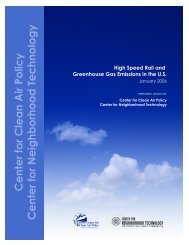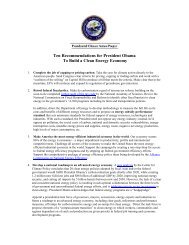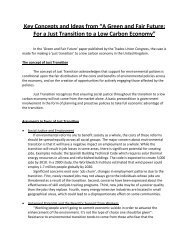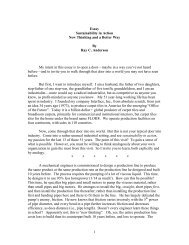PCAP - Presidential Climate Action Project
PCAP - Presidential Climate Action Project
PCAP - Presidential Climate Action Project
- No tags were found...
Create successful ePaper yourself
Turn your PDF publications into a flip-book with our unique Google optimized e-Paper software.
2. The developed country Parties and other Parties included in Annex Icommit themselves specifically as provided for in the following:(a) Each of these Parties shall adopt national policies and takecorresponding measures on the mitigation of climate change, by limitingits anthropogenic emissions of greenhouse gases and protecting andenhancing its GHG sinks and reservoirs. These policies and measures willdemonstrate that developed countries are taking the lead in modifyinglonger-term trends in anthropogenic emissions consistent with theobjective of the Convention, recognizing that the return by the end of thepresent decade to earlier levels of anthropogenic emissions of carbondioxide and other Greenhouse gases not controlled by the MontrealProtocol would contribute to such modification, and taking into accountthe differences in these Parties’ starting points and approaches, economicstructures and resource bases, the need to maintain strong and sustainableeconomic growth, available technologies and other individualcircumstances, as well as the need for equitable and appropriatecontributions by each of these Parties to the global effort regarding thatobjective. These Parties may implement such policies and measures jointlywith other Parties and may assist other Parties in contributing to theachievement of the objective of the Convention and, in particular, that ofthis subparagraph . . . .E. ConclusionThere is substantial general authority for executive action on climate change. <strong>Climate</strong> changehas been a recognized national policy issue for at least three decades. In 1978, Congress passedthe National <strong>Climate</strong> Program Act and has continued to pass legislation explicitly addressingclimate change, global warming or greenhouse gases ever since. Congress has delegated to thePresident, through legislation, substantial authority to develop climate change policy andorganize and manage federal operations to address the issue. In terms of historical executiveaction, beginning with George H. Bush in 1990 presidents have been issuing proclamationsacknowledging concern over GHG emissions and global warming. More recently, PresidentClinton and President George W. Bush have issued comprehensive executive orders directingagency action on climate change and GHG emissions (on June 3, 1999 and January 24, 2007,respectively). Beginning almost a decade ago, global climate change has explicitly been thesubject matter of executive orders.CEES 15 | P age



